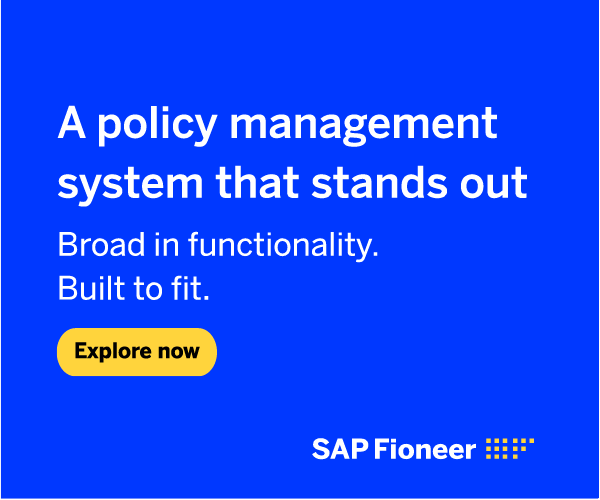• Collaborative competition – or “onepetition” is key to growth in the Asian insurance industry, with insurtechs like bolttech aiming to enable the industry rather than disrupt it.
• The main area of competition among insurers is quality of service, rather than product range, said Nippon Life’s Makoto Okubo. “By competing, we enhance the quality of service we provide by removing the anxiety within people.”
• The commercial insurance sector in Asia is in the best position to take advantage of investments in digitalisation, said Lloyd’s Asia CEO Emma Loynes.
Insurers in Asia will have to collaborate and cooperate to help the industry grow, said senior industry executives at the Global Insurance Forum in Singapore.
“It’s a bit about collaboration and cooperation,” said Robert Schimek, group CEO at bolttech, an insurtech that says it is the largest insurance exchange in the world. “We use this phrase called ‘one-petition’, where we have to be friendly competitors, but we’ve got to cooperate with each other.”
A core philosophy for bolttech has been that it is not in business to disrupt the Asian insurance market but rather to facilitate the growth of the industry and a broad range of markets, Schimek said at a session during the opening day of the Forum on Monday, November 6.
“We’re here trying to enable the Asian insurance environment. So we are partners with carriers around the world,” Schimek said.
Facilitating this collaboration will require Insurers to figure out how to use new technologies as they evolve. But a challenge for them to overcome will be the simple reality that they will not be able to do everything on their own, Schimek added.
“When I went to (Wharton), we had a wonderful phrase, which was ‘you’ve got to cooperate to graduate’. If this industry is going to graduate to the next stage, we must be around, work in teams, work as a group.”
Bolttech works to embed their capabilities with clients like telco companies in Asia, extending the reach of insurance offerings.
“We don’t care that everyone doesn’t know us as a household name,” said Schimek. “It’s okay, because what we’re trying to do is that we’re trying to bring the enabling capability.”
The company aims to define embedded insurance depending on the market that a customer is living in.
“In Europe, you might find us working with hearing aids. You might find us working with your eyeglasses. You might find us working with your cell phone.”
Selling a customer something at their exact point of need is actually the first transaction the company wants to do with them, Schimek added.
“It’s the beginning of a journey, and the more we work within that journey, the more we can connect to other players in the ecosystem, other insurance carriers or distribution partners, and even very unlikely partners.”
Poised for digitalisation
The commercial insurance sector in Asia is in the best position to take advantage of an investment in digitalisation, said Emma Loynes, CEO of Lloyd’s Asia. “There was a survey done recently, where 35% (of participants) cited that digital transformation and improved consumer experience was their number one priority.”
Lloyd’s recognises that Asia represents a significant opportunity as a market, said Loynes. The company created Lloyd’s Lab in 2018 to create an ecosystem where over 100 insurtech companies get access to 300 brokers and a “really broad” range of market participants to help them to develop their products, she added.
Lloyd’s Lab had over 150 applicants this year, with 12 insurtech companies chosen across three categories.
“I think it’s really something where there’s a lot of opportunity,” Loynes said.
Insurers need to keep building their technical capabilities, but the sector also needs to be able to attract talent with a range of skills, she added. Diversity of thought and skill will allow companies to innovate and face challenges.
“We need to do a much better job of articulating, seeing young talents coming, is (your) organisation about the societal well-being of insurance,” Loynes said. “We have a perception problem in this industry, and we need to address that… it’s about teamwork, it’s about collaboration, it’s about convening.”























